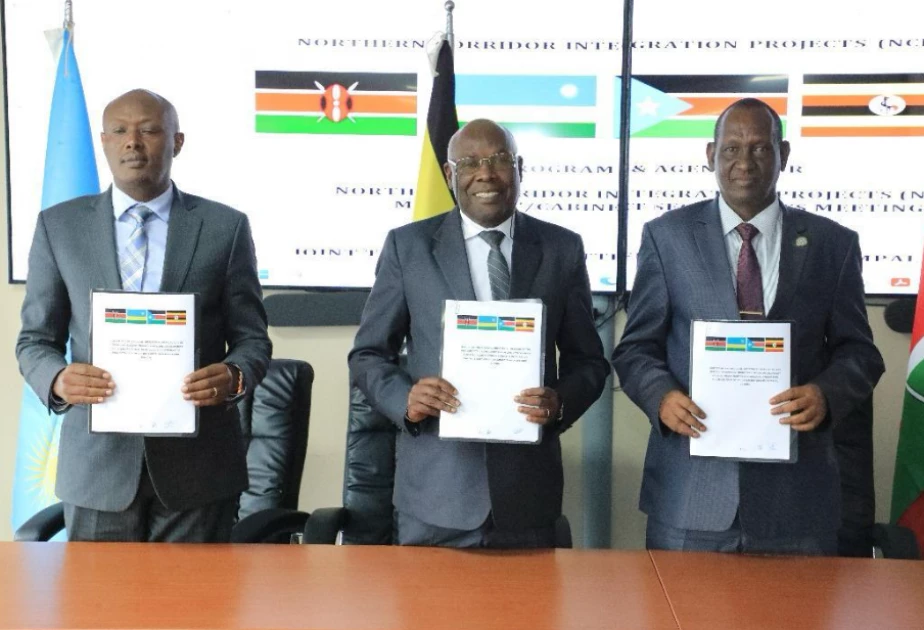Technical committee formed as plans advance for Eldoret-Kampala-Kigali petroleum pipeline

Rwandan Ambassador to Uganda Ismael Baguma, Uganda's Minister for State for Energy Okaasai Opolot, Kenya’s Petroleum Principal Secretary Mohamed Liban. PHOTO | COURTESY

Audio By Vocalize
Kenya, Uganda, Rwanda, and South Sudan have established a Joint Technical Committee to oversee the development of the Eldoret-Kampala-Kigali refined petroleum products pipeline.
The formation of the technical committee
follows the reopening of talks between the four countries for extension of the
pipeline in May.
Further discussions were held in Nairobi in
July to establish the committee, which will guide the process of the
construction of the pipeline which will carry different petroleum products.
The Eldoret-Kampala-Kigali pipeline was first
conceptualized in 1995 and formalized in a 2013 agreement between Kenya,
Uganda, and Rwanda. However, implementation has faced delays.
In May 2024, the partner states revived
discussions on the project, given its importance in reducing reliance on road
transportation of oil, while ensuring a steady fuel supply for the region.
The decision to commission a joint technical
committee was announced in Entebbe, Uganda at the beginning of the month, when
representatives from partner states led by Uganda’s Minister for State for
Energy, Okaasai Opolot, met at a joint ministerial meeting for the Northern
Corridor Integration Projects.
“The continued collaboration among Kenya,
Uganda, Rwanda and South Sudan illustrates the collective commitment to
advancing NCIP initiatives and unlocking the region's economic potential,” said
Principal Secretary for Petroleum Mohamed Liban.
Currently, petroleum products bound for the
regional market are imported and offloaded at the Port of Mombasa, then
transported via pipeline to Eldoret.
The products are then loaded onto trucks for
distribution to regional destinations, including Uganda, Rwanda, South Sudan,
and the Democratic Republic of Congo (DRC), by Oil Marketing Companies.
However, reliance on trucks poses challenges
including a negative environmental impact, a higher risk of accidents, and
potential spillages.
The committee has been tasked with a wide
mandate that includes reviewing land allocations, updating project timelines,
and establishing mechanisms to increase the use of the Kisumu Oil Jetty for
fuel transport to Uganda and beyond. It has also been tasked with preparing a
detailed report on the project's status and the steps to follow.
The extension of the pipeline from Eldoret is
crucial in providing a safer and eco-conscious mode of oil transportation into
the region, while also cutting transport costs associated with the use of
trucks.


Leave a Comment